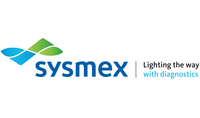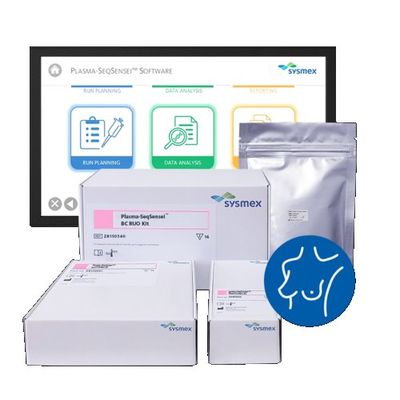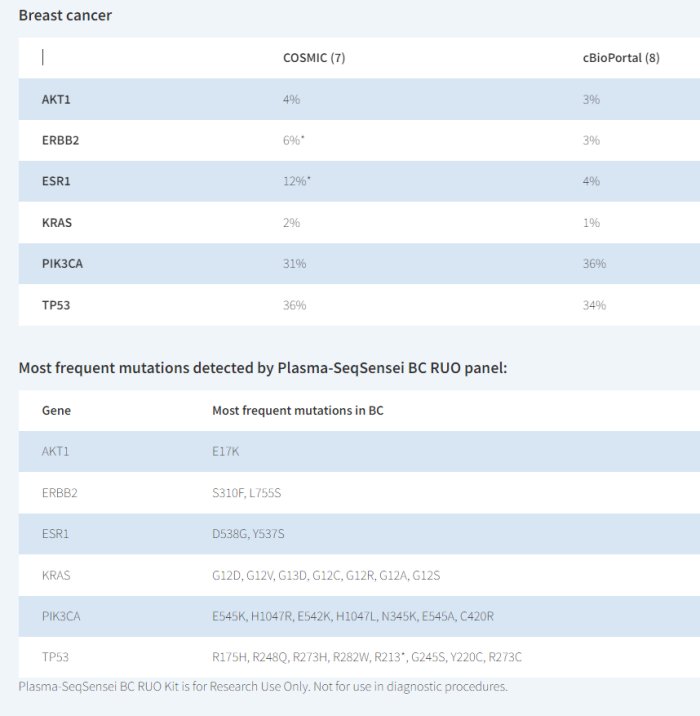

- Home
- Companies
- Sysmex Partec GmbH
- Products
- Sysmex - Plasma-SeqSensei™ BC RUO Kit

Sysmex - Plasma-SeqSensei™ BC RUO Kit
Highly sensitive down to 0.06 % MAF, Able to detect 6 MM with 95 % confidence across all mutations (absolute quantification), High flexibility of between 2-16 samples/run, Fast TAT (2 days), Convenient software. Plasma-SeqSensei (PSS) BC RUO Kit allows for the highly sensitive and specific detection of mutations in circulating tumour DNA (ctDNA) from the plasma of patients with breast cancer. The kit is based on the next-generation sequencing technology and covers key gene mutations such as AKT1, ERBB2, ESR1, KRAS, PIK3CA and TP53 to detect established and emerging predictive markers, resistance mutations, and frequently occurring genetic alterations in breast cancer. These genes significantly contribute to the development of breast cancer and are important biomarkers utilised for the choice of therapy, prognosis as well as monitoring of recurrence and therapy response.
The different breast cancer subtypes show different mutational patterns, which affect response to treatment and prognosis. [2] For example, luminal A tumours present a higher proportion of?PIK3CA?mutations (49%), whereas basal-like tumours have mostly?TP53?mutations (84%).
Identifying patients with PIK3CA mutations who may benefit from PI3K-targeted therapy could help in guiding treatment decisions. The PIK3CA?mutations have also shown prognostic value as they are associated with an improved invasive disease-free survival. [3]
A comprehensive profiling of AKT1-E17K may help define a potential role for the mutation in the development and progression of breast cancer. [4]
ESR1?mutations are a marker of resistance to endocrine therapy, usually arising in patients treated with aromatase inhibitors in the adjuvant and metastatic settings. [5] Their detection could be used to monitor disease progression.
For the configuration of the Plasma-SeqSensei BC RUO kits, six key cancer genes were selected after comparison of mutation frequencies using the COSMIC (Catalogue of Somatic Mutation in Cancer) and cBioPortal for cancer genomics databases.

